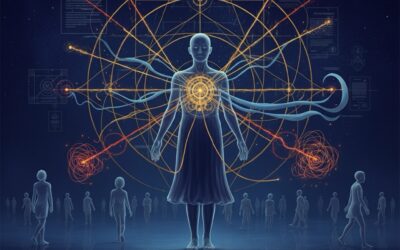Trauma is a shadow that lingers long after the event that caused it has passed. It can shape lives, relationships, and societies in profound ways. The 2023 documentary film “Origin,” directed by Ava DuVernay, brings this truth into sharp focus, especially through its exploration of Isabel Wilkerson’s work on caste and systemic inequality. One of the most compelling messages from the film is that you don’t escape trauma by denying it; you escape trauma by confronting it.
The Cost of Denial
Denial might seem like a shield against the pain of trauma, but in reality, it only deepens the wounds. When societies or individuals refuse to acknowledge past harms, they perpetuate the very suffering they seek to avoid. In “Origin,” Wilkerson’s analysis of caste systems highlights how denial of historical and ongoing injustices has entrenched inequality and oppression. This denial isn’t just a refusal to see the past; it’s an active barrier to healing and progress.
For individuals, denying trauma can lead to a range of issues, from mental health problems to strained relationships. It can manifest as anxiety, depression, or a pervasive sense of unease. Societal denial, on the other hand, results in systemic problems that affect entire communities and generations. It prevents societies from learning from their mistakes and fosters environments where similar harms can reoccur.
The Power of Confrontation
“Origin” advocates for a different approach: confronting trauma head-on. This doesn’t mean reliving painful experiences or dwelling on them endlessly. Instead, it involves recognizing the trauma, understanding its impacts, and taking active steps to address and heal from it.
Confronting trauma can be transformative. For individuals, it might involve therapy, or open conversations On a societal level, it means acknowledging historical injustices, educating about past harms, and implementing policies that promote equity and justice.
Wilkerson’s work, as depicted in the film, underscores the importance of this approach. By understanding the hidden caste systems that underpin much of our social structure, we can begin to dismantle these systems and work towards a more just and equitable society. This requires honesty, courage, and a willingness to face uncomfortable truths.
“Origin” is a powerful reminder that denial is not a path to freedom from trauma. Whether at an individual or societal level, true escape from trauma involves confrontation and active engagement with the past. By facing our traumas, we open the door to healing and transformation, both personally and collectively. The insights from “Origin” challenge us to reflect on our own lives and societies, encouraging a path of recognition, understanding, and meaningful change.




0 Comments